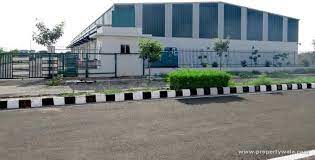Factory on Industrial Land
How to Establish a New Factory in Gurgaon, The most important aspect of establishing a factory is finding industrial plots and land with clear title and proper access. It may result in a significant monetary loss if subsequent deficiencies in title or approvals that were to be obtained prior to entering the land or beginning construction are discovered.
Agricultural or private land cannot be used to establish a factory until it is converted to industrial use. This is a common practice, but it can be a time-consuming process that requires repeated contact with the relevant government department. Acquiring private land in Gurgaon would also necessitate dealing with issues such as land fragmentation and compliance with local land ceiling laws.
Once the land has been identified, full title due diligence should be performed to ensure that the title is clear and the land is free of encumbrances such as mortgages and litigations. The maximum period for which governments allow access to land records is 30 years, and it is always prudent to conduct due diligence for the entire period.
Following this, underlying documentation should be properly drafted and all associated fees and duties (such as stamp duty, registration, and so on) should be fully paid during the conveyance process. All original documents should be kept as well, as they may be needed later on when raising funds.
It is better to lease or buy land in industrial parks than from private sources. As a result, you eliminate most of the title-related risk when purchasing private land.
Establishing a Manufacturing Facility
How to Establish a New Factory in Gurgaon, Every factory in India is required to follow the Factories Act of 1948. (“Factories Act”). A manufacturing unit is considered a ‘factory’ if it employs 10 or more workers who use power, or if it employs 20 workers who do not use power. The Factories Act governs all manufacturing processes and establishments in India, and various states have enacted their own legislation rules to carry out its provisions
The primary requirement is a factory licence: In most cases, an owner can register the factory with the state government online and request a licence. Depending on the nature of the manufacturing process – for example, if any factory proposes to use any hazardous substances, each state has different timelines and approvals, the registration process may necessitate the submission of additional documents and approvals, and it may take a little longer. Many states require land-related documents to be submitted with the application, so it is critical to complete land acquisition before submitting the application.
Pre-construction approvals: In addition to the factory licence, a factory must obtain a number of other approvals prior to or concurrent with construction. These vary by state, but standard approvals include building plan and site approval, consent to establish, and obtaining a power and water connection. Permissions for fires, boilers, and explosives, construction of a sewage or effluent treatment plant, or receiving a ‘no-objection’ from the pollution control board (if the industry is highly polluting, an environmental impact assessment study). Certain industries (such as drugs and pharmaceuticals) may also necessitate separate registration with the sectoral regulator.
Employees: Depending on the manufacturing process, factories require a mix of skilled, semi-skilled, and unskilled labour. These employees may be hired on a permanent, temporary, or ‘contract’ basis. All owners must follow labour laws and may be required to obtain registrations and licenses based on the number and type of workers employed in the factory, which may differ from state to state. Owners should take special care in managing and supervising contractors who provide labour, as well as in not hiring child labour and being aware of human trafficking issues.
Owners must also be aware of workman retrenchment provisions under Indian law, which are complex and frequently necessitate specialised advice to navigate. Importing equipment: If technology or equipment must be imported before the factory can begin operations, clearances from customs must be obtained. While import clearance procedures for most equipment are generally transparent, multiple rounds of documentation may be required. Proper agreements should also be in place depending on how the equipment is financed and brought into India, which may necessitate the involvement of a licenced dealer bank.
Takeaway: Because some pre-construction compliances will take less time than others, this should be factored into project timelines.
Managing a Factory
Once a factory is operational after completion of construction and installation of equipment, there are ongoing compliances under the Factories Act (such as filing of returns/intimations) as well as separate labour laws. Additional requirements for worker health and safety are also expected to be met at all times as well as the public display of notices in vernacular languages, as well as ensuring sanitary conditions and adequate sanitation facilities for workers. Many states now provide online compliance systems and have established fixed inspection intervals for government officers to visit factory sites and certify that all compliances are met.
An occupier named in the registration application (usually the manager/director of the company) is responsible for the factory’s failure to comply with the Factories Act, labour laws, and other basic health and safety requirements. A quality work environment, providing amenities to workers and making sure payments are made. Usually, the manager or director with local knowledge of these compliances should be designated as the owner.
Make sure you plan in advance for regular compliances and implement a monitoring system.
Aquarock is a major industrial factory provider in Gurgaon. For any information, you can directly contact us and get the free consultation on call.

